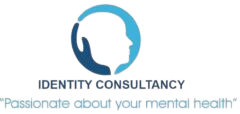We are here to help
- 10 Lessons
- 6 Studenst
At Ientity, we provide comprehensive neurodevelopmental diagnostic assessments and cognitive testing for adults, adolescents, and children. These assessments may help to get a thorough understanding of psychological, social, or educational functioning, the challenges you or your child are facing, as well as your personal strengths, preferences and goals.

What is the difference between a Neurodevelopmental, Educational and Cognitive Assessment?
Neurodevelopmental, educational, and cognitive assessments are all types of evaluations conducted by professionals to assess various aspects of an individual’s functioning. While there may be some overlap in the areas assessed, each type of assessment focuses on different aspects and serves distinct purposes:
Neurodevelopmental Assessment:
A neurodevelopmental assessment evaluates an individual’s development and functioning within the context of neurological and developmental processes. It focuses on identifying and diagnosing neurodevelopmental disorders, such as autism spectrum disorder (ASD), attention-deficit/hyperactivity disorder (ADHD), intellectual disabilities, and specific learning disorders.
This type of assessment may include evaluating language development, motor skills, social interaction, attention and executive functioning, sensory processing, and other aspects of neurodevelopment.
Educational Assessment (Psychoeducational Assessment):
An educational assessment, also known as a psychoeducational assessment, evaluates an individual’s academic skills, learning abilities, and educational needs. It focuses on identifying learning difficulties, determining educational placement, and developing appropriate interventions and accommodations to support academic success.
This type of assessment may include assessing academic achievement (e.g., reading, writing, math), cognitive abilities (e.g., intellectual functioning), language skills, memory, attention, and other factors that may impact learning.
Cognitive Assessment:
A cognitive assessment evaluates an individual’s cognitive abilities and intellectual functioning. It focuses on assessing various aspects of cognitive functioning, such as memory, attention, reasoning, problem-solving, language, and perceptual-motor skills.
This type of assessment provides information about an individual’s cognitive strengths and weaknesses, which can inform educational planning, intervention strategies, and diagnostic considerations.
Our experienced psychologists and psychiatrists will work with you to identify the best assessment approach for you or your child’s needs. With your goals and comfort in mind, we aim to provide a thorough understanding of the challenges you or your child are facing, make tailored recommendations to enhance well-being, and advocate for you or your child’s needs where appropriate.
Assessments include:
- Assessments for neurodevelopmental disorders such as Attention Deficit Hyperactivity Disorder (ADHD) and Autism Spectrum Disorder (ASD).
- Psychoeducational Assessments (e.g., Academic abilities, Dyslexia, Dyscalculia Testing)
- Cognitive Assessment (IQ testing)
- Memory Assessment.
- Assessments of Executive Functioning.
- Personality Assessment.
- Forensic Assessment.
Who can benefit from it?
You might benefit from a psychological or cognitive assessment if:
- You notice particular challenges in certain areas such as learning, memory and comprehension.
- You have always struggled with social situations or communication with others and often feel that you ‘don’t get it’.
- You notice significant difficulties in attention or maintaining focus.
- You are noticing problems with your memory.
- You are looking for structured input to help improve work performance, family life or social relations.
Your child might benefit from a psychological or cognitive assessment if:
- Concerns have been raised by teachers or parents about development and/or behavior.
- Concerns have been raised about their academic abilities at school in areas such as reading, writing or mathematics.
- You or the school are noticing your child has above average abilities and skills in comparison to peers of the same age.
- You are noticing they struggle to focus or concentrate, find it difficult to sit still, and often interrupt or act without thinking.
- You are noticing they don’t respond to their name, tend to avoid eye contact or engage in repetitive movements.
- You notice your child is not talking as much as other children or they are struggling to maintain friendships and social play.
FAQ

Course Details:
Course Price:
$1500
Instructor
Zac Livingston
Lesson Duration
12 Weeks
Lessons
45
Places for Students
12
Language:
English, Spanish, French
Certifications
Digital, Physical
